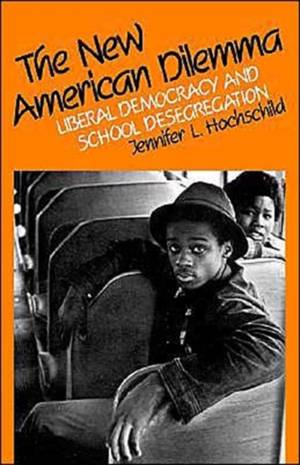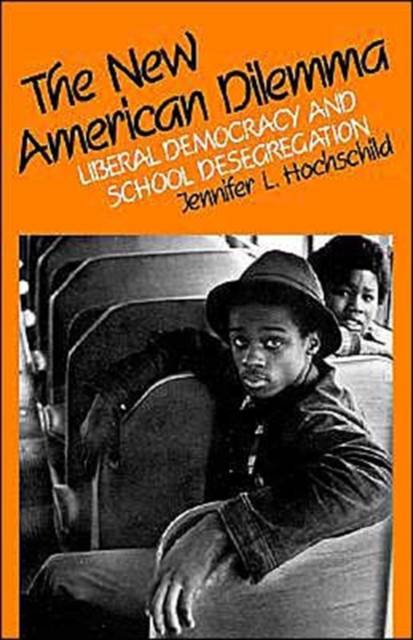
- Afhalen na 1 uur in een winkel met voorraad
- Gratis thuislevering in België vanaf € 30
- Ruim aanbod met 7 miljoen producten
- Afhalen na 1 uur in een winkel met voorraad
- Gratis thuislevering in België vanaf € 30
- Ruim aanbod met 7 miljoen producten
Zoeken
€ 42,45
+ 84 punten
Omschrijving
Conventional wisdom and democratic theory hold that the best way to achieve controversial policy changes is in small, cautious steps and with participation of the various groups involved. Yet America's thirty years of experience with school desegregation shows this belief to be false. In this provocative new book, Jennifer Hochschild argues that when incremental and participatory methods are used to desegregate schools, both blacks and whites end up worse off--with little freedom and equality for blacks, much disruption and pain for both races, and few educational gains for anyone. However, school desegregation can succeed--for everyone--when rapid and extensive change is imposed by nonelected officials, at a centralized level, and without citizen involvement.
Hochschild examines the record of school desegregation to show why this is so. She demonstrates, for example, that parental advisory groups have been ineffective or even harmful in designing new plans; that busing a few students short distances has been less effective than busing many students throughout a metropolitan area; that slowly phasing in desegregation increases white flight. More profoundly, she shows that racism is deeply embedded in our society and that whites may not be as willing to give it up as they think.
Hochschild contends that we must choose between superficial "safe" changes that benefit a few at the expense of many and profound, deeply unpopular changes that in the long run will liberate most. That is the real American dilemma.
"A comprehensive synthesis of what is known about the processes of school desegregation and a powerful policy-oriented argument on a subject whose crucial significance Americans have been unable to wish away." -Paul E. Peterson, Brookings Institution
Hochschild examines the record of school desegregation to show why this is so. She demonstrates, for example, that parental advisory groups have been ineffective or even harmful in designing new plans; that busing a few students short distances has been less effective than busing many students throughout a metropolitan area; that slowly phasing in desegregation increases white flight. More profoundly, she shows that racism is deeply embedded in our society and that whites may not be as willing to give it up as they think.
Hochschild contends that we must choose between superficial "safe" changes that benefit a few at the expense of many and profound, deeply unpopular changes that in the long run will liberate most. That is the real American dilemma.
"A comprehensive synthesis of what is known about the processes of school desegregation and a powerful policy-oriented argument on a subject whose crucial significance Americans have been unable to wish away." -Paul E. Peterson, Brookings Institution
Specificaties
Betrokkenen
- Auteur(s):
- Uitgeverij:
Inhoud
- Aantal bladzijden:
- 264
- Taal:
- Engels
- Reeks:
Eigenschappen
- Productcode (EAN):
- 9780300031140
- Verschijningsdatum:
- 10/09/1984
- Uitvoering:
- Paperback
- Formaat:
- Trade paperback (VS)
- Afmetingen:
- 141 mm x 210 mm
- Gewicht:
- 340 g

Alleen bij Standaard Boekhandel
+ 84 punten op je klantenkaart van Standaard Boekhandel
Beoordelingen
We publiceren alleen reviews die voldoen aan de voorwaarden voor reviews. Bekijk onze voorwaarden voor reviews.











